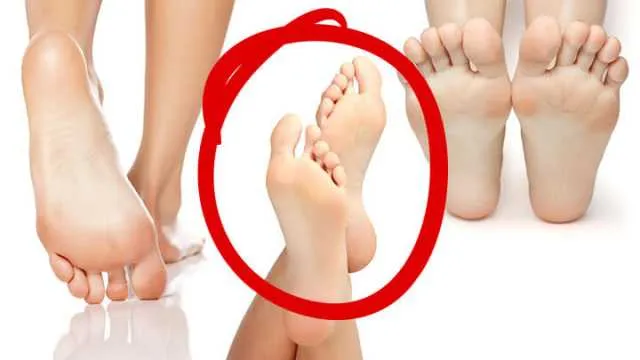
- Share on Facebook126
- Share on Pinterest
- Share on Twitter
When’s the last time you took a good, long look at your feet? Most of us only catch a glance of our feet when we’re stuffing them into socks and shoes before we head off for work. This is such a shame because our feet can tell us a whole lot about our health — and maybe even our personalities, too.
1. Common foot
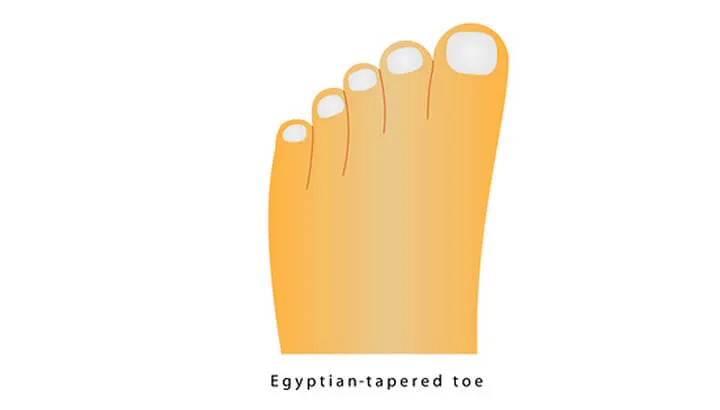
If your toes align in a straight slope, this is a common foot type, also called an “Egyptian foot.” Apparently, this means you’re a social butterfly and open to trying new things. This foot type is also associated with those who love to travel and never quite satiate their wanderlust.
2. Flame foot
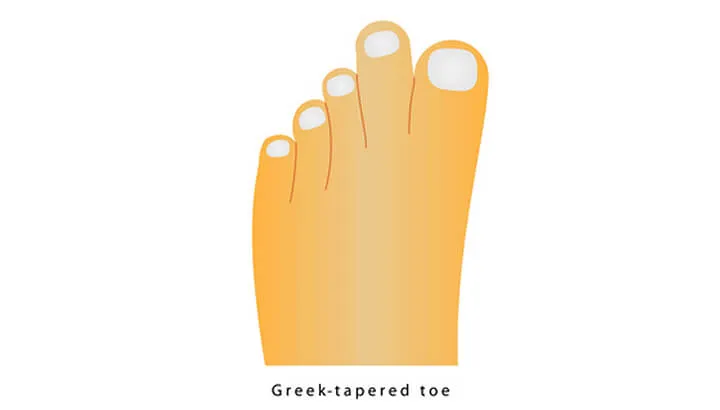
This is also known as a “Greek foot” and researchers estimate that up to 22 percent of the general population have this foot shape. If your second toe is longer than the others (called a “Morton’s toe”), supposedly you’re athletic, energetic and open-minded. You may have an upbeat personality and you’re also great at keeping secrets. However, be aware that your energy lends itself to an impulsive nature and stressful circumstances, so try to think things through before acting.
3. Square foot
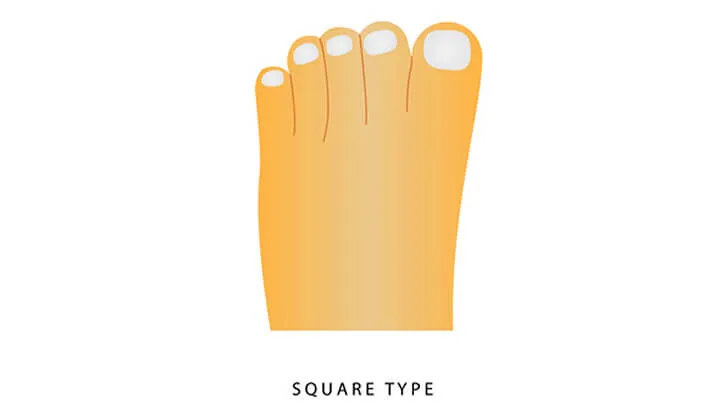
Also called a “peasant foot,” this refers to toes that are all equal in length, forming more or less a square shape. If this is you, it is said that you’re a daydreamer. People may tell you that you’re frequently lost in your own thoughts. You are also known to overanalyze and worry about every little thing. On a positive note, with your expert planning and thinking skills, people may think of you as a caretaker figure.
What your feet say about your health
While the foot shape and personality link aren’t proven by science, your feet are a true window into your overall health, if you take the time to look. A change in your feet or toes could point to a serious health issue that needs medical attention right away. If your feet and toes are:
- Bald: you may have poor circulation from a vascular disease.
- Burning: you may have diabetes, a vitamin B deficiency, alcoholism, poor circulation, kidney disease, dermatitis or thyroid issues.
- Cold: you may have an under-functioning thyroid, poor circulation, high blood pressure, heart disease, diabetes, anemia or you’re a smoker.
- Cramped: you may be dehydrated or exercising too hard. If the condition is chronic, you may need more magnesium, potassium and calcium in your diet.
- Enlarged: you may be experiencing a type of arthritis called gout, which is a buildup of uric acid, most commonly seen in the big toe.
- Itchy: you may have a fungal infection, like athlete’s foot, which also causes dry and flaky skin
- Numb: you may have peripheral neuropathy (damage to your peripheral nervous system), often caused by uncontrolled diabetes or alcohol abuse.
- Persistently wounded: you may have an ulcer from diabetes, which takes a long time to heal — if it ever does. The elevated glucose in your blood may create nerve damage on your feet, so you might not even feel a wound
- Paralyzed: you may have experienced trauma in your neck, back or leg. You should see a doctor right away.
- Sore: you may be experiencing the early stages or rheumatoid arthritis, which tends to go for the smaller joints (like toes) first.
- Swollen: you may be pregnant, have poor circulation, congestive heart failure, kidney disease or a blood clot in the leg. See your doctor, pronto.
How to take better care of your feet
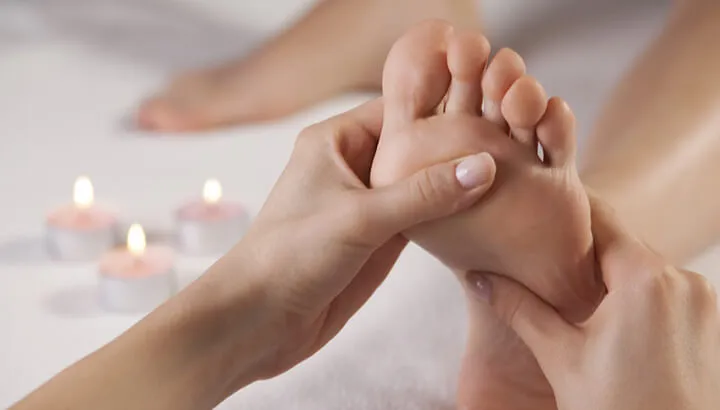
Most of us take our feet for granted, despite the fact that they carry us wherever we need to go. As you can see, our feet are true barometers for our health, even though they are often overlooked.
The best way to care for feet is to take preventative measures, the same strategy for taking care of the whole body. Make sure to get plenty of exercise, meditate, eat healthy foods and get enough sleep, along with maintaining a low-stress lifestyle.
Apart from disease prevention and working directly with your doctor, here are a few other ways to keep your feet happy and healthy:
- Exfoliate
- Moisturize
- Get a foot massage
- Enjoy a sea salt soak
- Wash them every day
- Wear comfortable shoes
- Practice reflexology on yourself
- Apply herbal remedies for stinky feet
- Rub them with essential oils, like lavender, oregano, peppermint and lemon
- Go barefoot (called “earthing” or “grounding, which has therapeutic benefits)
What’s your favorite way to take care of your feet? Let us know in the comments below!
— The Alternative Daily
- Share on Facebook126
- Share on Pinterest
- Share on Twitter

